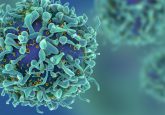DNA methylation in urothelial carcinoma
DNA methylation alterations are common in urothelial carcinoma, a prevalent cancer worldwide caused predominantly by chemical carcinogens. Recent studies have proposed sets of hypermethylated genes as promising diagnostic and prognostic biomarkers from urine or tissue samples, which require validation. Other studies have revealed intriguing links between specific carcinogens and DNA methylation alterations in cancer tissues or blood that might clarify carcinogenesis mechanisms and aid prevention. Like DNA methylation alterations, mutations in chromatin regulators are frequent, underlining the importance of epigenetic changes. However, the relations between the two changes and their functions in urothelial carcinogenesis remain unclear. Transcription factor genes with altered methylation deserve particular interest. Elucidating the functional impact of methylation changes is a prerequisite for their therapeutic targeting.
Click here to view the full article in Epigenomics.


